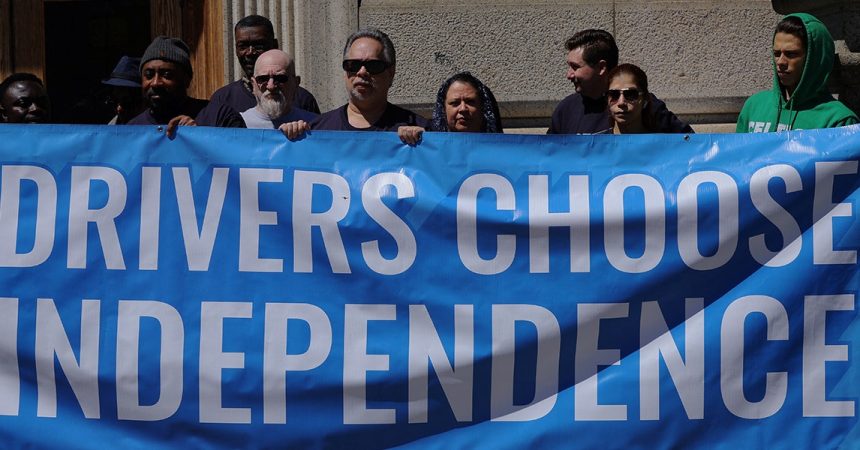The California Supreme Court on Thursday ruled unanimously that drivers for app-based companies including Uber, Lyft, and DoorDash will remain independent contractors, as opposed to employees. The decision, upholding a state ballot measure called Proposition 22, was considered a major victory for the gig-economy companies.
The question of whether those who drive for the companies should be treated as employees or contractors has spurred a yearslong legal battle in the state. In 2020, California voters approved Proposition 22, allowing app-based companies to continue to treat their workers as independent contractors. That vote reversed an earlier court ruling that found such companies controlled too many of their drivers’ working conditions to treat them as contractors. The ballot measure campaign cost its advocates, including Uber, Lyft, Postmates, Instacart, and DoorDash, some $200 million, breaking state records for spending.
Driver advocates have long argued that those behind the wheel were due the same sort of benefits offered to full-time employees, including health care, sick pay, and workers’ compensation. The companies have said that gig work is an entirely new and flexible form of work, and that treating drivers as employees would reshape their businesses. One 2020 analysis suggested that treating drivers as employees in California would cost Uber and Lyft nearly $800 million annually in just payroll taxes and benefits.
The 2020 ballot measure required the app-based companies to institute a wage floor, at least for the time drivers spend with passengers in the car, and to pay out health care stipends for workers who drive enough monthly hours.
“Today’s decision was supposed to bring justice, to confirm that even as workers who are managed by apps on our phone, by algorithms, by AI, that we are indeed workers with robot managers,” Nicole Moore, president of Rideshare Drivers United and a part-time driver in Los Angeles, said during a briefing with reporters following the decision. “And we deserve the same rights and benefits as all other workers in our state. But that did not happen today.” Moore called on lawmakers in the state to find a “creative pathway” to ensure that drivers are protected and paid fairly.
In a statement, Uber said the ruling put “an end to misguided attempts to force [drivers] into an employment model that they overwhelmingly do not want.” Lyft also praised the decision: “We are pleased to continue to bring Californians closer to their friends, family, and neighbors, and provide drivers with access to flexible earnings opportunities and benefits while preserving their independence.”
On a call for reporters hosted by proponents of Proposition 22, some drivers said they were glad that app-based companies would maintain their flexibility. “I’m just so grateful right now,” said driver Stephanie Whitfield, who works in the Coachella Valley.
The ruling won’t have a direct effect on other states’ gig worker laws, but could influence policy in other places. Minnesota and Colorado both recently passed laws instituting better pay standards for app-based drivers, though neither resolved whether workers should be treated as contractors or employees. The Biden administration has taken aim at worker misclassification in the gig economy through new labor rules, though app-based companies say those rules don’t affect their businesses.
Read the full article here










